Wild Orcas Keep Giving Humans Gifts, Leaving Experts Puzzled
July 4, 2025
For centuries, humans have seen themselves as nature’s charitable givers. We toss bread to ducks, rescue stray kittens, and offer food to wandering wildlife.
But what if some animals are turning the tables—offering us gifts instead?
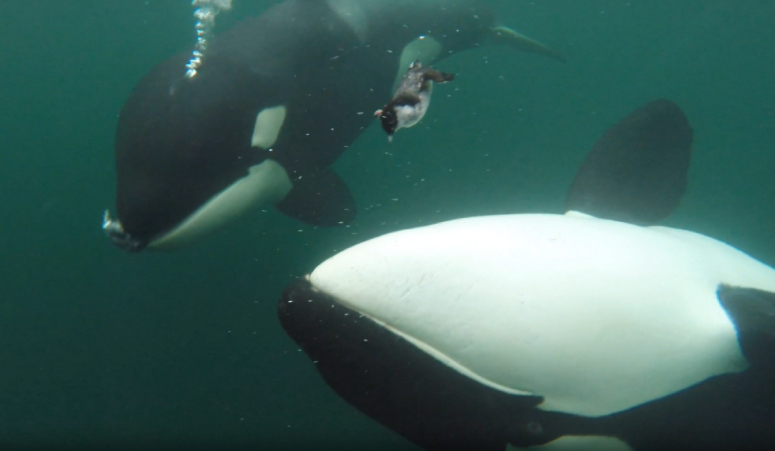
Credit: Journal of Comparative Psychology
A newly published study in the *Journal of Comparative Psychology* has documented 34 intriguing cases of wild orcas delivering prey and other objects directly to humans. The events span decades and locations, from the cold waters of Norway to the coast of New Zealand, and include reports of orcas presenting people with fish, birds, stingrays, seaweed, and in one astonishing case, a sea turtle.
In nearly every instance, the orca didn’t simply drop the object and swim away. Instead, the whale hovered nearby, as if waiting to see what the human would do next.
The behavior is rare and puzzling—and appears to be intentional.
The research team, led by orca specialist Jared Towers, compiled first-hand accounts and field observations to explore the phenomenon. The findings suggest these aren’t isolated accidents or simple misidentifications. Rather, orcas may be using prey—or symbolic items—as a way to initiate interaction or communication with humans.
In some cases, humans accepted the "gift," only to toss it back into the water. The orcas then retrieved the item and brought it back again, repeating the cycle like an underwater game of fetch. In 33 of the 34 recorded incidents, the orca lingered after the exchange, observing the human response.
Video shows an orca offering food to a human
Video shows an orca offering food to a human
What’s driving this unusual behavior?
The researchers offer a few theories. Perhaps orcas, known for their intelligence and complex social lives, are simply curious. Giving items to humans may be a way to test boundaries, explore, or even play. Another possibility is that this reflects a natural extension of the orcas’ own food-sharing culture—an ingrained part of their lives within pods—now being extended to humans.
Although stories of animals helping humans appear in mythology and folklore, real-life scientific documentation of wild animals offering food to humans is exceedingly rare. Leopard seals offering penguins to divers is one of the few previously noted examples.
Importantly, none of these recorded orca interactions have involved aggression. Despite their nickname “killer whales,” wild orcas have never been known to kill a human.
So, what does it mean when one of the ocean’s most formidable predators starts offering us lunch?
It may be nothing more than curiosity—or it could signal something deeper: a desire to connect, communicate, or even form a relationship.
As the researchers conclude, these interactions may represent early signs of “learned cultural behavior” between species. In short, orcas may be reaching across the boundary between human and animal—not with words, but with gifts.
 Dogs Are Forced To Wear The Things They Steal — And It’s Hilarious
Dogs Are Forced To Wear The Things They Steal — And It’s Hilarious
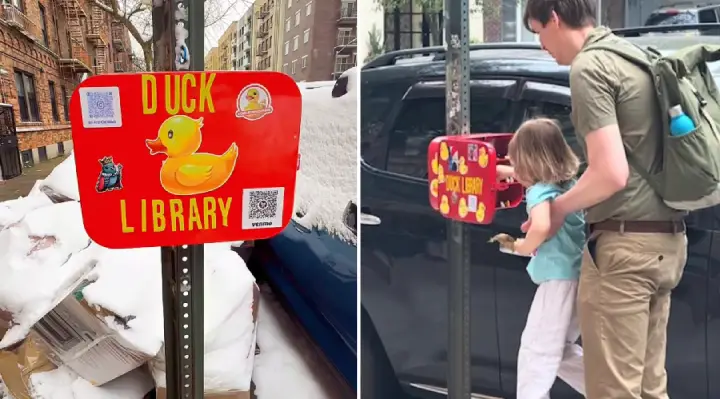 Kids Are Loving The Tiny Duck Libraries Popping Up Around New York City
Kids Are Loving The Tiny Duck Libraries Popping Up Around New York City
 A Man Ruined A Beautiful Snowman Display — What Happened Next Was Perfect
A Man Ruined A Beautiful Snowman Display — What Happened Next Was Perfect
 Jonathan And Nancy Fell In Love In Real Life — And So Did Their Stunt Doubles
Jonathan And Nancy Fell In Love In Real Life — And So Did Their Stunt Doubles
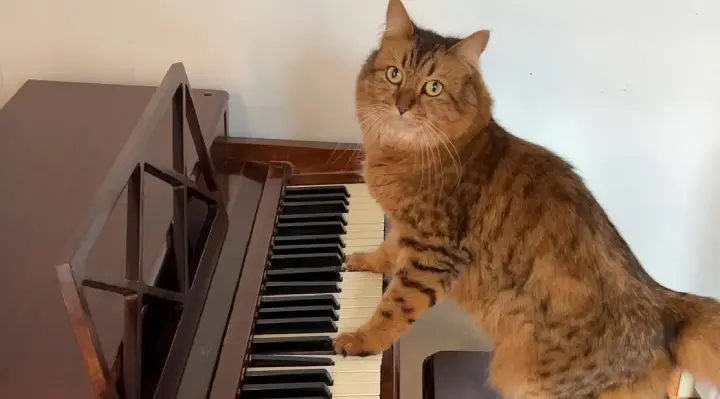 Cat Owner Begs Internet For Advice On How To Get Her Cat To Stop Playing Piano
Cat Owner Begs Internet For Advice On How To Get Her Cat To Stop Playing Piano
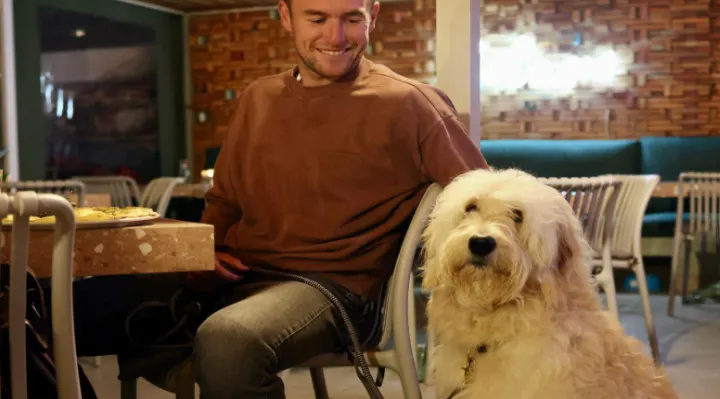 This Restaurant's Dog Menu Is Almost As Fancy As The Human Menu
This Restaurant's Dog Menu Is Almost As Fancy As The Human Menu
 Dogs Are Forced To Wear The Things They Steal — And It’s Hilarious
Dogs Are Forced To Wear The Things They Steal — And It’s Hilarious
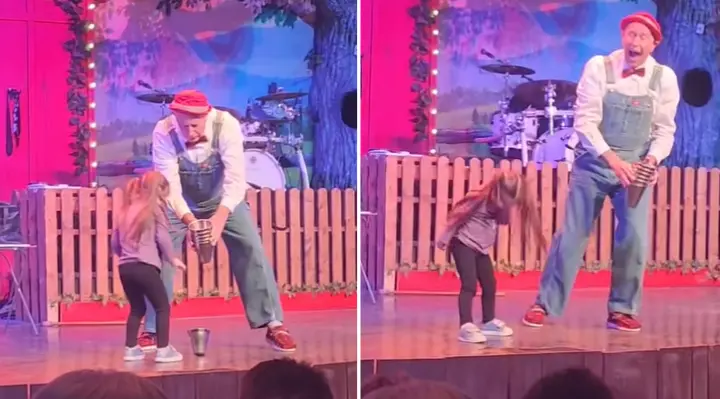 Watch This 4-Year-Old Girl Steal The Show At A Comedy Club
Watch This 4-Year-Old Girl Steal The Show At A Comedy Club
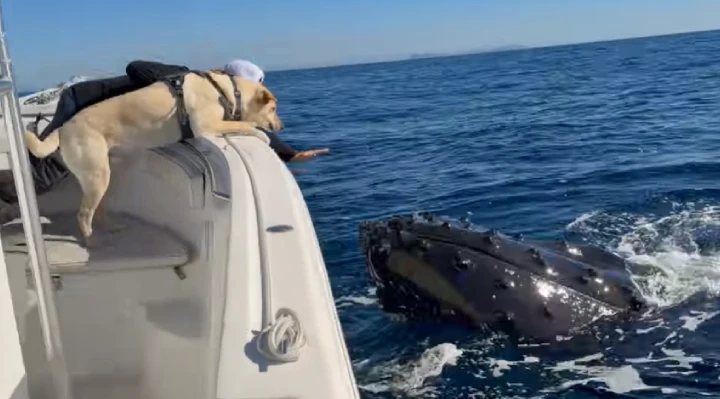 Two Humpback Whales Fall In Love With A Dog In Incredible Video
Two Humpback Whales Fall In Love With A Dog In Incredible Video
 Vermont Trooper Jumps Into Frozen Pond To Save Child Trapped Under Ice
Vermont Trooper Jumps Into Frozen Pond To Save Child Trapped Under Ice
 20 Years Later, Watch What Happens When This Couple’s Wedding Song Plays
20 Years Later, Watch What Happens When This Couple’s Wedding Song Plays
